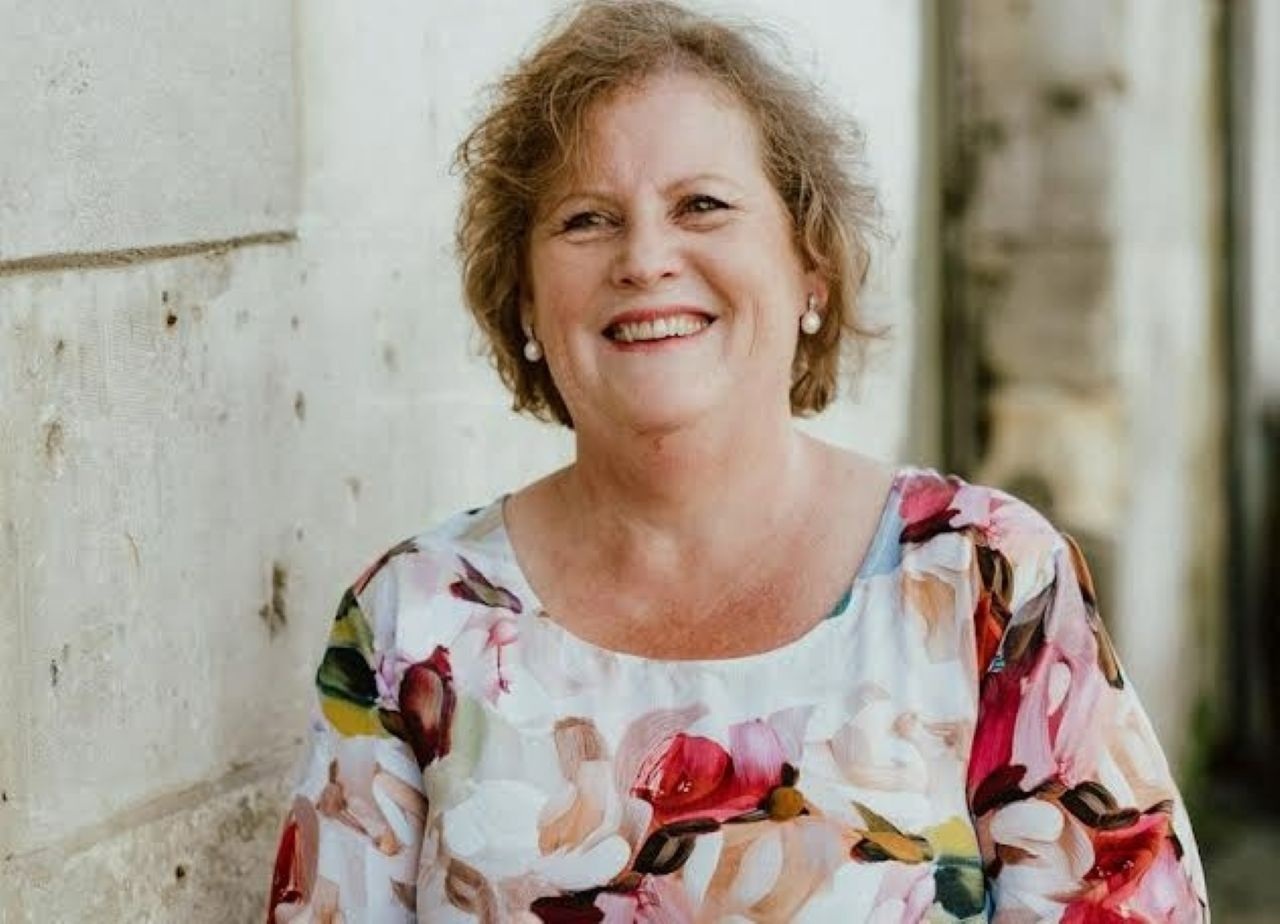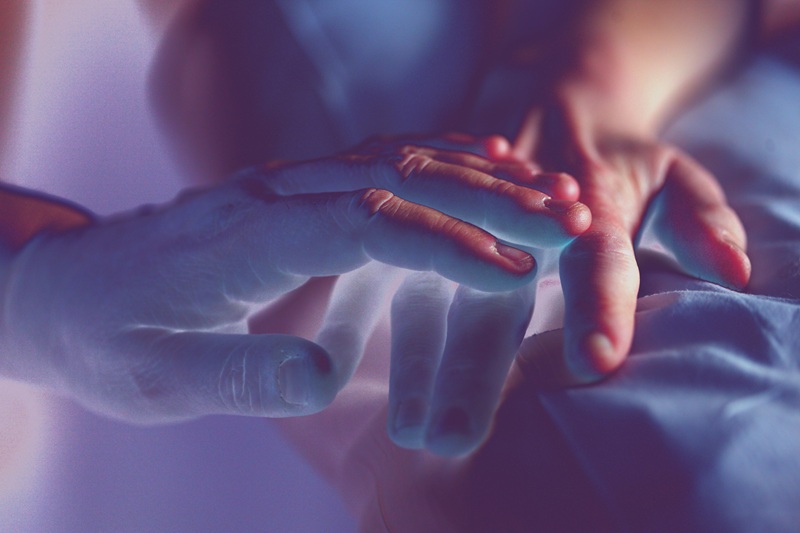End of life doula offers holistic approach to help people die well
Ashley Smyth
13 August 2025, 1:50 AM
 Celebrant and end of life doula, Sally Cattle. Photo: Supplied
Celebrant and end of life doula, Sally Cattle. Photo: SuppliedPeople need to talk about dying more. (8-minute read)
North Otago celebrant Sally Cattle has been working as an end-of-life doula for about two years, having been a marriage and funeral celebrant before that.
Sally was looking to expand her work, and she noticed, when preparing for funerals, a lot of families didn’t have guidance around dealing with things when they needed it.
“I just felt there was something missing, and in my journey working with families, preparing funerals and that sort of thing, I realised that a lot of people don't discuss death or talk about death or have guidance with things when they need it.
“So when someone dies, we call in the funeral director or whatever we want to do and that's great. It gets sorted out and we plan our farewell and it's done.
“But I just feel that we're not prepared for death. Like when we when we're in our normal life, we prepare for birthdays, we prepare for when our babies arrive, we prepare for our holidays, we do a lot of planning around all life events, but we don't plan for when we're going to die.”
While living in the North Island, Sally volunteered at hospices, and has always been involved in health and wellness in “some shape or form”.
“It’s just in my nature, I seem to be drawn to compassionate roles, if you like.”
She says the reluctance to talk about dying and death stems back to when the world wars came along.
Before that, communities would look after their dead and dying together.
“The women of the communities, mainly, would help assist when people were sick and then they'd look after the bodies after they died.”
As hospitals became more common, there was more medical intervention, and then funeral directors to come in and take the dead bodies away.
“So it changed the format of how a community deals with the dead and death and dying,” she says.
“It sort of swung the pendulum quite a long way, to where we're quite removed from thinking about our own mortality and our deaths and what will happen to us.”
Sally’s role as an end-of-life doula, is less a medical role and more of a “practical, spiritual, non-judgemental role”.

Photo: Alexander Grey on Unsplash
She offers help in a wide range of areas, giving holistic care to people as they face dying.
“Helping people to think about opening up conversations, taking the fear away from whatever treatments they're having, researching and finding out with them, giving them a space to learn or just express how they're feeling.”
When people are diagnosed with a life-threatening illness, they're usually living with it for some time, Sally says.
“So, it gives them time to explore that and and how that makes them feel and what treatments they want, how they want their end of life to look, what they would like to happen in the meantime, and just a safe space to explore all those sorts of important things.
“When you're living with a chronic or a life-threatening, or a life-limiting illness, your life changes quite dramatically and lots of things change - your thinking changes and your ability to do different things changes.
“As a doula, I like to say to people ‘well we want to give you the best quality of life you can have for as long as you've got it. Let's explore how we can make that experience of living with whatever it is you're living with, the best it can be and how we can go about that and supporting your loved ones and your people around you that are caring for you to help that to happen and find ways to do that’.
“And then we can start talking more deeply about when the end of life comes, what type of care would they like, how would they like it to look, how do they feel, what are their biggest fears, how we can cope with all those.
“So there's a lot a lot involved in it, and it all just comes out in time . . . and it's just building up a trust with people and going in there and just listening really and just letting people have safe spaces to express their thoughts.”
Sally recognises what she does is a huge privilege, and she appreciates she is walking into people's homes and families' lives, often as a stranger.
“You know, they all have the doctors, the nurses, the care workers, the health care system, you know, the physios or whoever it is they need, come in for a purpose, whereas I come in and just say, ‘Hey, I'm here for you, whatever this experience is for you'.”
As an aside from her work as a doula, Sally is a proponent of everyone creating an advanced care plan, just in case.
So if somebody falls sick unexpectedly, or has an illness of some type, they have a plan in place of the things that are most important to them, and what they would like in regards to treatment, she says.
Her family were faced with a situation about five years ago, when Sally’s own father was rushed to Dunedin Hospital.
“I used to have conversations with my dad quite often about you know, ‘how do you feel about this and that, Dad?’.
“You know, we'd have these conversations, but he'd never let me write it down. He'd never fill in a care plan. There was no need for any of that rubbish, you know.”
While she and her mother were waiting outside the intensive care unit, dealing with the emotions of her father’s sudden decline, they were also having to make tough decisions about his treatment options.
“A team of surgeons and anaesthetists came in, ‘your dad's very sick, you know, what do you want us to do?’
“So we started to have this huge decision-making time right when we were all feeling very distressed,” she says.
“All that information we had to sort of condense into such a small moment when you're the most vulnerable, most distressed.”
He had always told Sally he didn’t want “any fuss or bother”, but a lot of people can say that, without making specific plans or writing anything down, which can be a “two-edged sword”, she says.
“The hardest decision we had to make was to switch the ventilator off and let him go in his own time.
“It all was such a rushed thing because of the situation we were in. You can't prevent that. That's just the nature of what it was. But, we all agreed afterwards in hindsight that we understood and we felt we'd done the right thing by dad because of the conversations we'd had before.
"I just go in with love and compassion and an open heart."
“Even though he hadn't written it down, we'd had a conversation and that made it so much easier.
“So anyway . . . this got me into more of the doula work because I thought, we don't have these conversations.”
Sally also sees the importance of people telling their life stories, and encourages people to find a way to share them.
“We're all very important people in our own families, and we've all done something, and we all think we're not worthy of talking about . . . but I sort of think we've all got a legacy and we've all got something that's important to our families to pass on.
“It doesn't matter how small and insignificant we think it is, in the eyes of the future generations, that could be something that's really important for them to know and understand.”
Sally also offers workshops for smaller groups of people to help them plan their funerals, helping them consider where they would like their funeral, how it would look, and how it would best represent them.
“It's capturing the essence of you and you're telling them so there's no confusion . . . it gives them an idea when they've lost you and they've got no idea where to start.”
Sally says becoming an end-of-life doula, or soul midwife, seemed a natural fit with what she already did as a celebrant. She considers it a circle of care.
“I just love to be able to help people through all those huge stages in life.
While Sally admits she is a “bit of a sook” and cries over anything, she copes with the emotions of the job knowing she has helped a person walk through what can be a horrible time.
“I come away feeling that I have supported and helped those people, and I do my level best to do as much as I can to give them the support they need and want.”
Sally did most of her training online through Peaceful Presence - a Canada-based organisation, and is registered with the End of Life Doula Alliance Aotearoa.
While awareness around the services an end of life doula provides are growing, the Ōamaru community is slow to catch on.
There is good support here in the community for people already, so it can be difficult to choose to pay for an extra service, she says.
“I like to think that I'm just another person working alongside the community, along with the amazing job the funeral directors do and the health people and the hospices and things. you know, we're all working together for the same reasons really, supporting and serving families.”
Outside of her work, Sally and her husband of 40 years, Richard, try to visit their three grandchildren in the North Island as much as possible, as well as her mother in Dunedin.
She loves the outdoors, singing, yoga and fishing.
“And just socialising with friends.”
She emphasises her work is mainly about having an open heart.
"There's no judgment, there's no preconceived ideas or expectation. We've got to be very careful with people's emotions and experiences.
"I just go in with love and compassion and an open heart and just do what people need most to make the most of each day.”
